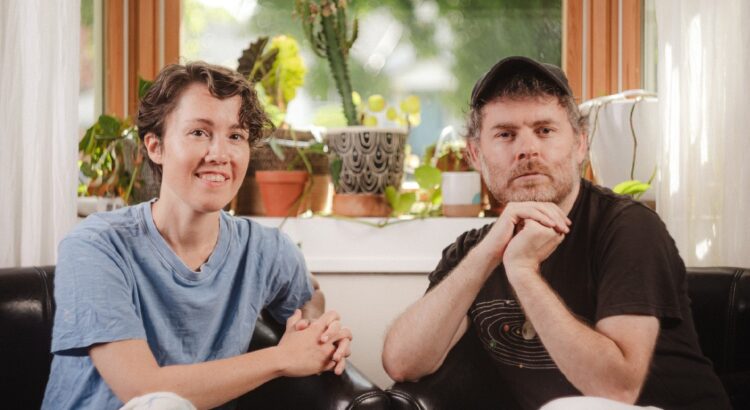What does it mean to “be infinite”?
Though one could ponder this, well, infinitely, Argentinian short story author Jorge Luis Borges does so in seven pages in his 1941 work Tower of Babel, which inspired Caroline Shaw and Gabriel Kahane’s newly-commissioned Hexagons, presented by UMS. In Tower of Babel, we follow a nameless, elderly man through an infinite, hexagonal library. Each shelf has randomly arranged books, each containing exactly 410 pages. While most pages have no discernible meaning, other librarians allege that it could take just one book to reveal the library’s secrets, and thus, the meaning of life. A profound paradox about human nature and the finite time we have alive, I entered the auditorium excited to witness philosophy come to life through music.
Kahane and Shaw had ideas to write operas about Borges’s text separately, a tension that remained musically unresolved on stage. While Kahane’s fascinating hybridization of singing and songwriting created mini-musicals, Shaw’s enrapturing yet foreboding vocal presence consistently grabbed my attention throughout, often waysiding Kahane entirely. While I marveled at the interplay between Shaw’s impressive choral singing and Kahane’s flowing piano melodies, which were undoubtedly virtuosic, the theatrical elements of the piece left much to be desired.
About halfway through, the performers pause, slowly producing two boxes of books. Placing them atop a desk near their instruments, they each switch on a reading lamp, and calmly begin pulling books from said boxes. Reading these random books aloud, they begin separately at first until the boundaries between their voices blur, and their words become more frantic, producing unintelligible chaos until they fall silent – a metaphor for a busy world that felt too on the nose for such experimental work.
Perhaps my heart rests too heavily with Borges’s text, as the audible landscapes of Hexagons evoke feelings of restraint and nostalgia for a familiar past, than those of infinitude and unraveling chaos to find meaning I felt destined to hear. As Shaw longs, “Oh, to be a blind librarian”, I have lost any sense of connection between Hexagons and Borges and am bewildered by this dimension of longing for impairment. Furthermore, their decision to finish their performance with Kahane’s To Be American played into these notions of nostalgia that I found troubling. While they pined about escaping to the forests of Northern Michigan, I was left pining for something more than a personal requiem. The only seemingly infinite components of the performance were Shaw’s vocals cascading through the auditorium and my confusion.
Hexagons rests at the edge of musical infinity: contemplative of the subject from a safe distance, yet not totally sure of how to manage the responsibility of creating an “infinite” performance. As treasured books continuously become subpar movies, I am disappointed that the only meaningful dimension added to Borges’ philosophical text was music alone. Though I am excited by a future increasingly inclusive of experimental repertoire, my only hope is that it becomes a medium to embolden texts to exist beyond their pages — beyond the restraints of the written word itself, and within the infinite realm of music.


